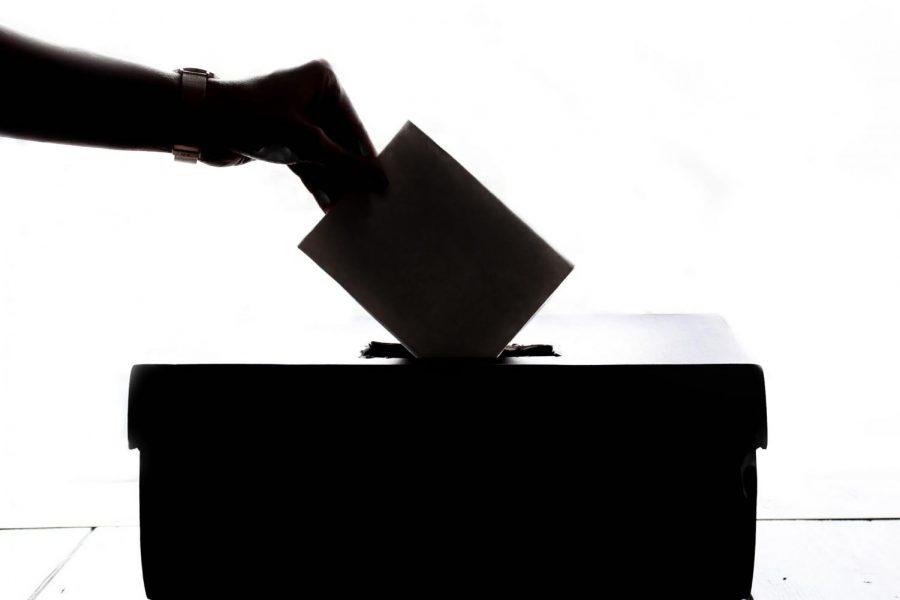Why the Electoral College should be abolished
Photo by Element5 Digital on Unsplash
“Citizens cannot make the direct decision for who becomes the greatest leader in office, because the government has limited their ability in doing so. At the end of the day, it comes down to the electors votes – not the people.”
February 14, 2020
Approved in 1787, the U.S. Electoral College has been a part of the system that has elected our nation’s greatest leader for the last 232 years. While some say that the EC increases the political influence of small states, many would also argue that it is no longer relevant to the matter. It is an ongoing debate that should perhaps call for closer examination in the future years of presidential elections.
Many have proposed the abolishment of the electoral college, due to the unfair advantage larger states have over small states in terms of electors. The framers of the U.S. Constitution originally constructed the EC in an attempt to provide an equal voice for rural areas with small populations. At the time, they believed that, without systematic overview, the opinion of the minority would be trumped by the greater populated states, but there is no real evidence or any given explanation of how it works in doing so. In the article Getting Rid of the Electoral College Isn’t Just About Trump from the New York Times, Jamelle Bouie makes an example out of the EC by stating, “…hypothetically a bare majority in the 11 largest states is all it takes to win 270 electors and become president — an actual instance of big-state domination.” While many would argue that it is unlikely, it is still a very real possibility in the determination of who wins the presidency. This arrangement encourages candidates to focus their campaigning and political attention on the larger states, using strategic appeal in the states with the larger populations rather than attempting to sway the population and the people as a whole.
In addition to the controversy of the numbers demographic, there is also a clear unfairness found in a state’s red or blue reliability. Allowing states to be reliably Democratic or Republican makes it harder for the voice of individual citizens to feel heard in casting their votes. It also makes it easier for presidential candidates to focus their attention on winning over key states – basically ignoring the states that are not flying their preferred colors. Bouie makes a fair point in this by mentioning the disadvantages of a state’s political affiliation in the EC. “…out of almost 400 campaign stops made after the conventions, neither Hillary Clinton nor Donald Trump made appearances in Arkansas, Oregon, Idaho, Wyoming, Montana, the Dakotas, Kansas, Oklahoma, Louisiana, Mississippi, New York, South Carolina, Tennessee, Kentucky, West Virginia or Vermont. It does not matter that Trump won millions of votes in New Jersey or that Hillary Clinton won millions in Texas. If your state is reliably red or blue, you are ignored.”
Despite the disadvantages of the electoral college, many would argue that it is still relevant in terms of preserving federalism and securing our republic with representative democracy. The argument made is justified, as the Founding Fathers wanted to enforce the separation of powers. They wanted to ensure that the people are not given too much power in the say of government leadership – that the leaders and representatives elected directly for the state should be trusted with such decisions. “Representative Democracy — The citizens rule through representatives whom they elect periodically to keep them accountable. The power of the people to control their government is thus limited by the actions of their elected representatives,” said Robert Longley in his article Reasons to Keep the Electoral College. But is that not contradictory to the freedom of the people? Sure, citizens may directly elect their representatives, but what about the individuals who voted against said representative? Why should their direct vote for the leader of our country be dismissed and overruled by a representative they did not choose? It is this very reason many feel silenced when it is time to count the ballots. And it is the same reason that many have given up voting altogether. There is no pure democracy. Citizens cannot make the direct decision for who becomes the greatest leader in office, because the government has limited their ability in doing so. At the end of the day, it comes down to the electors votes – not the people.
The Electoral College is partial and not at all inclusive in its claims of representation, therefore rendering its cold grip on the ballot box as nothing more than an inconvenience to the average voter. It has not proven to be helpful in the election of our president and creates a political landlocking of states that does not do justice to the vote of the individual. Many are pushing for a repeal and are fighting for their voices to be heard. “We are living in a dangerous world where the stability of the United States of America is one of the most important things facing us… When we have an Electoral College system which threatens to elect a man who has fewer votes than his opponent, we tend to erode the confidence in the people of this country and their president and in their form of government,” said Bouie. It is only a matter of time before people rise up and demand change. A pure democracy.










